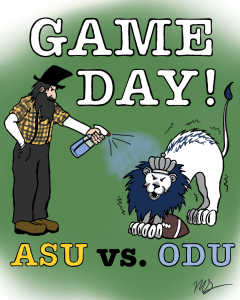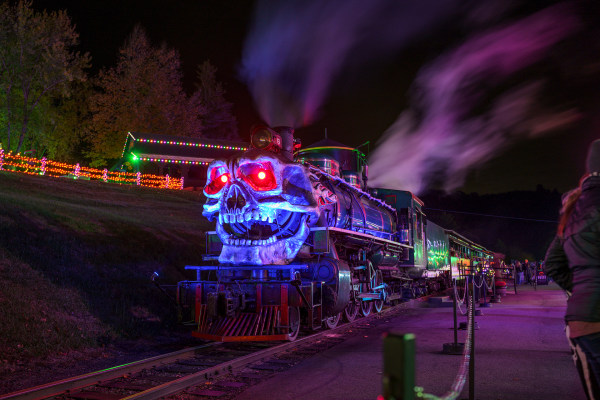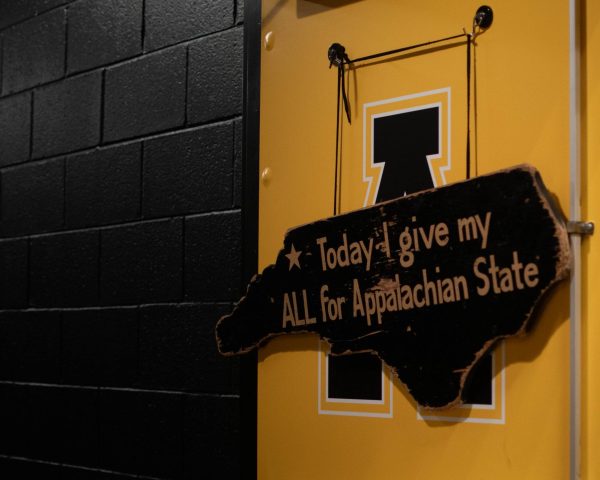Through Ella’s Eyes: The hillbilly stereotype is outdated and lazy
October 7, 2021
The hillbilly stereotype is prevalent in American pop culture. As early as the 1904 silent movie “The Moonshiner,” stereotypes have been a crutch for lazy writing. The 1972 movie “Deliverance” and more recently, the 2016 book and 2020 movie “Hillbilly Elegy” have encouraged and continued harmful misconceptions about Appalachian people.
Stereotyped as poor, uneducated, unclean and white, Appalachian people have faced years of economic, environmental and social prejudice. Rampant poverty, unemployment and addiction in rural Appalachia is not a punchline or a plot point for Hollywood. It’s a product of gross underdevelopment due to neglect by the government and corporate carelessness. Rosann Kent, Appalachian studies professor at the University of North Georgia, asked, “why are we the last acceptable stereotype?” Kent raises an important question. Why are Appalachia’s culture, people and dialect a source of mockery rather than a unique and respected facet of American culture?
Appalachian culture is a melting pot of traditions culminating in a uniquely American expression of identity. Appalachian music, dance and food are a combination of cultures predominantly from West Africa, the British Isles, and the Cherokee and other Appalachian tribes. One of the most heavily stereotyped aspects of Appalachian identity is the Appalachian dialect. Speakers of the dialect often face preconceptions about their intelligence, competency or potential, especially in professional and academic settings. Appalachian speakers are perceived as less educated, less intelligent and poorer than speakers without an accent. Stereotypes lead to prejudice in the real world. Linguistic and cultural diversity should be celebrated, not suppressed.
Not only are stereotypes about Appalachia damaging, they wildly mischaracterize the region. The assumption that all Appalachian people are white writes off the many minority groups residing in the mountains. The Cherokee and the Shawnee called Appalachia home long before white settlers. Melungeons, a mixed race people with African, Native American and European ancestry, historically reside in Appalachia. Junaluska is a Black community right here in Boone. In fact, Junaluska is the only remaining community of its type in Watauga County.
The misconception of helpless, poor mountain people has also been emboldened by political tokenism. Presidents including Lyndon Johnson and Richard Nixon, as well as religious leaders like Billy Graham and Jesse Jackson, went on “poverty tours” that characterized Appalachia as “poor, backward and white.” Appalachia has long been used as a political bargaining chip for politicians and public figures that have left the region a graveyard of broken political promises. It’s no wonder Appalachia is known for its fierce independence and mistrust of the government.
The disregard of the culture and struggles of the Appalachian people is flawlessly represented in Frank Rich’s 2017 essay “No Sympathy for the Hillbilly.” Rich expresses that the working class “hillbillies” who voted for Trump are a lost cause and don’t know what’s good for them. He takes a rather pretentious stance on Appalachian politics stating, “let them reap the consequences for voting against their own interests.” Rich seems to know an awful lot about Appalachian interests for a wealthy Manhattanite. Working people in Appalachia are time and time again scapegoated and othered because of inaccurate and outdated stereotypes. The hillbilly persona isn’t just a harmless caricature. These misconceptions lead to real consequences for Appalachians.
Appalachian stereotypes are unfortunately not going anywhere, but awareness is the first step in combating harmful misconceptions. App State has done a great job of making Appalachian Studies accessible and engaging to students. Appalachian Politics, Appalachia in Film, Appalachian Culture, and Diversity in Appalachia are just a few classes the university offers. Stereotypes are rooted in ignorance. Learning about the region we go to school in is only common sense. If the classroom isn’t your forte, strike up a conversation with an Appalachian person – we’re very nice, I promise. Communication and education challenge prejudice. Stereotypes are lazy and outdated, and we can all do better to not feed into them.














Kelly Peters • Dec 2, 2021 at 10:26 pm
The Appalachian stereotype is also complex with built-in tensions. It often displays both backwardness AND nostalgia, ignorance AND earthy wisdom, and laziness AND hard work. Stubbornness is at times a weakness and at other times a strength.
check us out